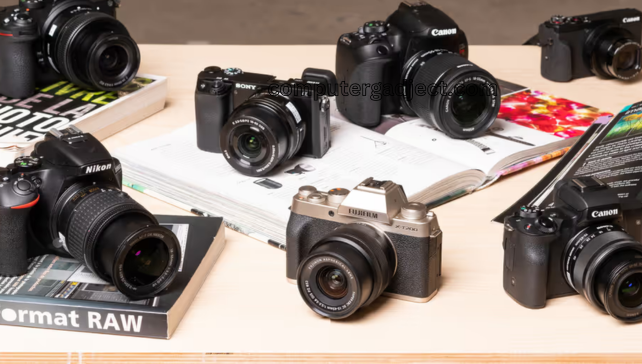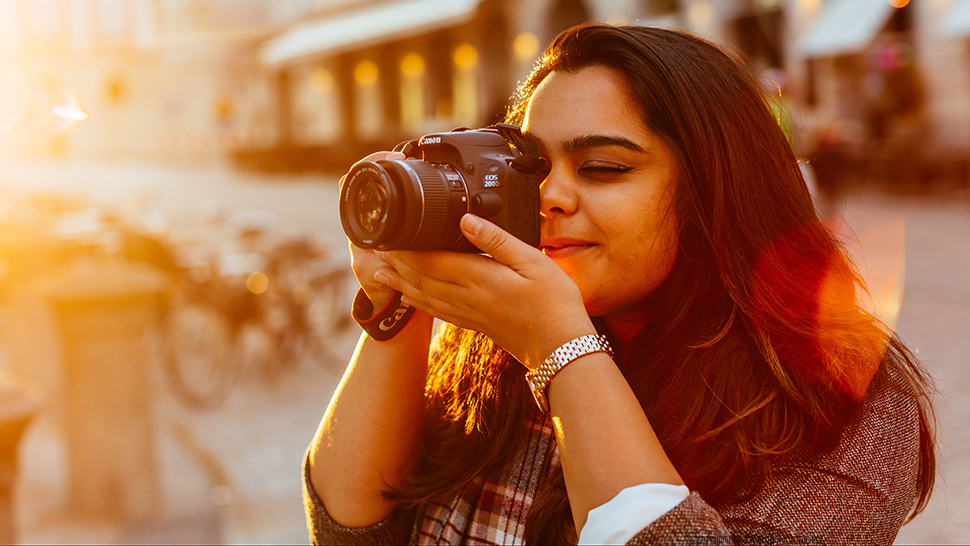The best camera for a beginning photography business is the Canon EOS Rebel T7i, which offers a balance of affordability and features. With its 24.2-megapixel APS-C image sensor, fast autofocus, and easy-to-use interface, the Rebel T7i is an excellent option for beginners looking to improve their photography skills.
Starting a photography business can be exciting and intimidating. One of the most essential equipment a photographer will need is a camera. With so many options available, deciding which one to invest in can be difficult, especially for those just starting out.
The best camera will depend on the photographer’s specific needs, budget, and skill level. However, for beginners looking for a camera that balances affordability and features, the Canon EOS Rebel T7i is a great option. We’ll explore why the Rebel T7i is an excellent choice for those starting a photography business and what features make it stand out.
The Importance Of A Good Camera For A Photography Business
A quality camera is vital for a budding photography business. Investing in a good camera allows you to obtain better image quality, versatility in taking photographs and the possibility of tackling different clients and projects. Starting with a camera that suits your needs and budget is essential to success in the industry.
As a beginner in the photography business, you may wonder if a good camera is necessary or if your budget option will suffice. The truth is that investing in a quality camera is crucial to your success as a photographer. His camera is the tool he uses to capture the moments his clients will cherish forever. It represents his professionalism and sets the tone for the quality of his work. In this article, we’ll focus on the importance of a good camera for a photography business, including how quality photographs reflect your business and why keeping up with the competition is essential.
Quality Photos Reflect Your Business
The photographs you produce are a direct reflection of your business. Your photographs’ quality demonstrates your professionalism and attention to detail. Customers want to know they can trust you to capture their special moments; a low-quality camera can undermine that trust. Investing in a good camera shows your customers that you take your job seriously and are committed to delivering exceptional results. Plus, high-quality photos not only make your business look good, but they also make your customers look good. They can use your photos to show themselves and their experiences in the best light possible, making them feel satisfied and eager to recommend you to others.
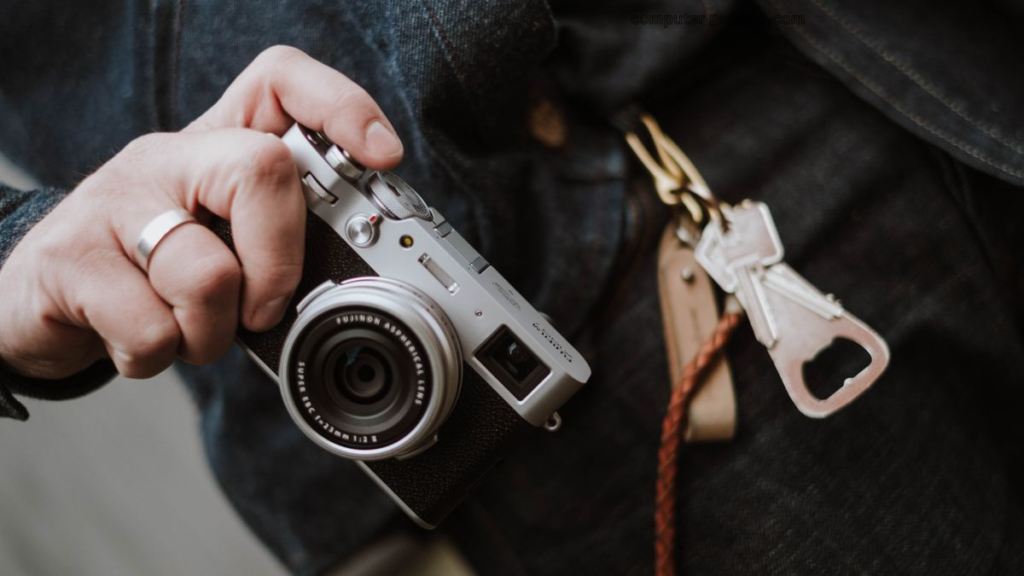
Keep Up With Competition
The photography industry is highly competitive, and staying up to date with the latest trends and technologies is essential. Investing in a quality camera will help you remain competitive and differentiate yourself. Clients are looking for photographers who can produce unique, high-quality work; a good camera will give you the tools to achieve this. Whether a wedding photographer, portrait photographer, or any other type, a high-quality camera will help you stand out and attract new clients. In conclusion, a good camera is a crucial investment for any photographer starting in the business. It sets the tone for the quality of his work, reflects his professionalism and attention to detail, and helps him stay competitive in an industry that demands nothing but the best. Investing in a quality camera should be your top priority to become a successful photographer.
Factors To Consider When Choosing The Best Camera
Choosing the best camera for a beginner photography business can be daunting. Features such as lens options, camera type, budget, and resolution should be considered to ensure high-quality images that attract customers. Additionally, it’s essential to balance the cost of the camera with its capabilities to get the best value for your investment.
Starting a new photography business can be overwhelming, especially when it comes to deciding which camera to invest in. With many cameras on the market, it is still being determined which one to choose. However, with some guidance and a clear understanding of the factors, you can quickly identify the best camera for your business needs. This article will discuss the key factors to consider when choosing the best camera for your startup photography business.
Type Of Photography Business
The type of photography business you run will determine the kind of camera you will need. Wedding photographers, for example, need a camera that performs well in low-light conditions, has a fast shutter speed, and has excellent image stabilization. On the other hand, portrait photographers need a camera with high resolution, dynamic range, and colour accuracy. Event photographers need a camera that is lightweight and easy to handle. So, before choosing a camera, you need to identify the type of photography niche you specialize in.
Budget
Budget is an essential factor to consider when choosing the best camera. Consider how much you can invest in your camera and accessories. You don’t want to spend too much, but you also don’t want a camera that falls apart after a few uses. Striking a balance between quality and affordability is essential. Consider investing in a used camera or an older model if you’re on a tighter budget. Remember, you can always upgrade your camera in the future.
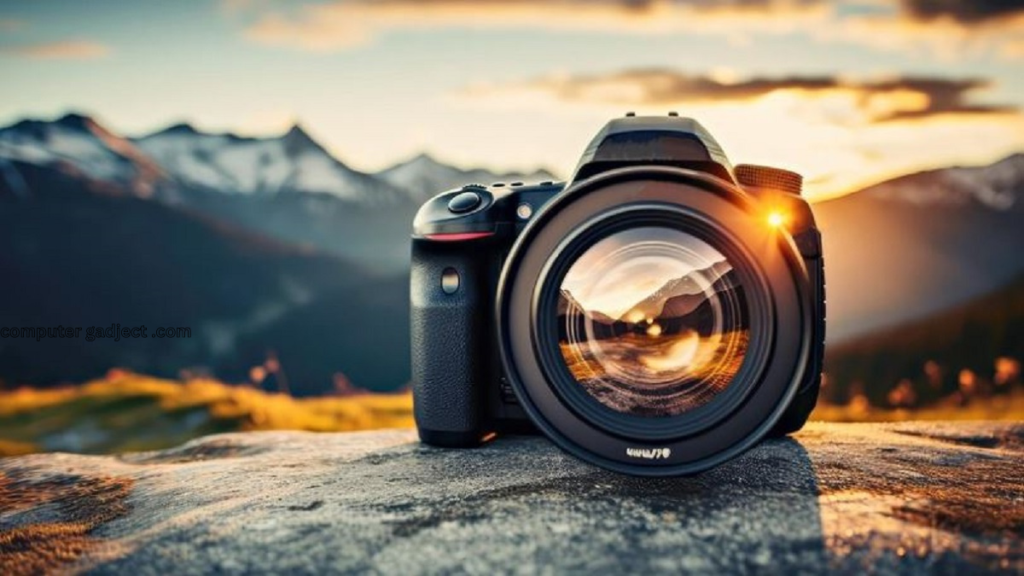
Camera Features
The features of a camera are some of the essential factors to consider when choosing the camera for your photography business. Features like sensor size, ISO range, autofocus system, and megapixel count make a big difference in the quality of images you produce. Check the camera’s features and specifications to determine if they meet the requirements of your photography niche. Also, consider whether the camera allows interchangeable lenses and has essential accessories for your business.
Size And Portability
As a photographer, you must choose a camera that is easy to transport, mainly if you shoot outdoors. When selecting the best camera for your business, camera size and portability are important factors. Choose a lightweight, compact camera that won’t weigh you down on long photo shoots. Consider mirrorless cameras offering a smaller form factor while maintaining excellent image quality. In conclusion, choosing the best camera for your startup photography business requires understanding your business needs, budget, camera features, and size/portability. By carefully considering these factors, you can identify the right camera that will help you deliver excellent images to your clients. Remember, choosing the right camera is one of the most important investments you will make in your photography business.
Top Camera Models For Beginning Photography Business
Starting a photography business can be overwhelming, but having the right camera can make all the difference. The best camera models for beginner photography businesses are the Canon EOS Rebel T7, Nikon D3500, and Sony Alpha A6000. These cameras are affordable, easy to use, and offer excellent image quality.
Starting a photography business requires excellent-quality equipment. Since photography is a visual medium, a high-quality camera is undoubtedly the most essential piece of equipment. It’s tempting to resort to a primary camera when starting, but investing in a more sophisticated camera can be necessary to launch a successful photography business.
Canon Eos Rebel T7
The Canon EOS Rebel T7 is a fantastic entry-level camera perfect for beginners looking to take their photography to the next level. Its 24.1 megapixel CMOS sensor produces stunning and vibrant images. The camera’s built-in Wi-Fi and NFC technology make it easy to share photos and videos wirelessly, while its narrow-angle lens is preferable for portraits and related photography. Its long-lasting battery allows it to shoot for hours without interruption.
Nikon D3500
The Nikon D3500 is another great option, making it an excellent choice for beginners passionate about photography. The camera is compact and lightweight and offers superb value for money. It has a 24.2 MP sensor, which makes images sharp, and thanks to its Guide mode, it is easy to use for beginners. The Nikon D3500 can also record video, making it an excellent tool for a photography company offering videography services. Plus, it has a long-lasting battery, meaning you can shoot for hours without interruption.
Sony Alpha A6000
The Sony Alpha a6000 is one of the most popular mirrorless cameras for beginners looking to start their photography business. It has a 24.3 MP sensor and a fast autofocus system, making it perfect for instant action shots. Its small frame makes it an excellent choice for travelling photographers, as it is lightweight and agile. Plus, it offers a fast processor and a tilting LCD screen that helps avoid low-frame shooting. When starting your photography business, investing in a high-quality camera is essential. It would help to look for a camera that offers excellent value for money, is easy to use and offers exceptional image quality. The Canon EOS Rebel T7, Nikon D3500, and Sony Alpha a6000 are among the best camera models for beginners. The one you choose will depend on your preferences and your photography business needs.
In-depth Reviews Of The Top Camera Models
Our in-depth reviews of the best camera models are perfect for those starting in the photography business. Discover the best camera for your needs and budget to take great photos and grow your business.
If you are starting a photography business, finding the right camera can be the most crucial and challenging decision. The camera is the main tool in your trade, so it is essential that you choose a camera that suits your needs and budget. Here are the best cameras for starting a photography business.
Features And Specs
Canon EOS Rebel T7 DSLR Camera The Canon EOS Rebel T7 DSLR Camera is an excellent choice for beginners. It has a 24.1 MP APS-C CMOS sensor and a DIGIC 4+ image processor, which provides sharp, clear images and brilliant colours. The camera is easy to use, and the functions are simple. It has a 9-point autofocus system, making it easy to focus on the subject. It also has built-in Wi-Fi and NFC connectivity, allowing you to share photos easily. Nikon D3500 Another fantastic camera for beginners is the Nikon D3500. It has a 24.2 MP CMOS sensor and an EXPEED 4 processor that delivers sharp and impressive images. The camera is easy to operate, and the controls are simple. It has an 11-point autofocus system helps you take sharp photos even in low light. The Nikon D3500 also has Bluetooth and SnapBridge built-in, making it easy to share your photos.

Pros And Cons
Camera
Pros
Cons
Canon EOS Rebel T7 DSLR Camera
- Easy to use and navigate
- Sharp and clear images
- Good for low light
- Built-in Wi-Fi and NFC connectivity
- No touch screen
- Video mode is not up to modern standards
- No significant upgrades from previous models
Nikon D3500
- Easy to use and handle
- Sharp and stunning images
- Good for low light
- Built-in Bluetooth and SnapBridge
- No touch screen
- No folding screen
- No image stabilization
Real-world Performance
The Canon EOS Rebel T7 DSLR and Nikon D3500 are great beginner cameras. They provide excellent image quality, easy handling and exemplary performance in various lighting conditions. They have easy-to-use controls and offer connectivity features, making it easy to share your work. However, the Canon EOS Rebel T7 DSLR camera falls short in video mode, while the Nikon D3500 lacks an image stabilization feature. Overall, both cameras are the best choice for any beginner photographer looking to start a photography business.
Accessories And Add-ons To Enhance Your Camera
Improving your camera is essential for an exceptional photography business. Accessories like a tripod, external flash, or remote control can take your photo-taking to the next level and add professionalism to your shots.
As a beginner photographer, investing in accessories and add-ons is essential to enhance your camera’s capabilities. These additional tools can make a big difference in the quality of your photos and make the process easier and more fun. Here are some crucial accessories and add-ons to consider, each with its unique benefits:
Lenses
Lenses are essential for any beginning photographer looking to expand their creative range. A good lens can make all the difference in your image’s detail, sharpness, and overall aesthetic. Before purchasing a lens, you must consider the type of photography you will be doing and which lenses are best suited. Some lenses, such as wide-angle lenses, are ideal for landscape and architectural photography, while others, such as macro lenses, are perfect for close-ups of flowers or insects.
Tripods
A tripod is another essential accessory for beginner photographers. Tripods are designed to keep your camera stable and in place, ensuring your photographs are sharp and free of unwanted movement. They are also helpful for long-exposure photography, low-light situations, and self-portraits. When purchasing a tripod, look for one that is sturdy, lightweight, and has adjustable legs and heads to accommodate different shooting angles and heights.
External Flash
An external flash can be a game-changer for beginner photographers who want to take their images to the next level. It provides a powerful burst of light that can illuminate your subject and create a professional-looking photograph. External flashes are especially useful in low-light situations where the camera’s built-in flash may not be enough. When purchasing an external flash, look for one that is compatible with your camera’s make and model and offers features such as adjustable power output, bounce, and pan.
Camera Bags
Finally, investing in a good camera bag is essential to keep your equipment organized, safe and easy to transport. Several types of camera bags are available, including backpacks, messenger bags, and complex cases. When choosing a camera bag, consider the size of your equipment, the types of environments you will photograph, and how comfortable the bag is to carry. In conclusion, upgrading your camera with accessories can help you take your photography business to new heights. By investing in lenses, tripods, external flashes and camera bags, you will be well-equipped to handle any photography situation that comes your way.
How To Properly Care For And Maintain Your Camera
To maintain and care for your camera as a beginner in the photography business, always read the manual carefully before using it. Keep your camera lenses clean by removing dust, fingerprints, and other debris with a microfiber cloth, and never touch the lenses with your fingers.
Store the camera in a cool, dry place and avoid extreme temperatures or humidity exposure. Following these practices will increase the longevity of your camera and improve the quality of your photographs.
Investing in the right equipment is essential for taking high-quality photos as a beginner photographer. A camera is one of the most critical equipment you will need. But having a camera is not enough; You must learn how to properly care for and maintain it to ensure that it remains functional and produces the best results. This blog post will give you tips on properly caring for and maintaining your camera. Specifically, we will discuss cleaning the lens and body, protecting it from moisture and dust, and regular maintenance and upkeep.
Cleaning The Lens And Body
One of the most important aspects of caring for your camera is cleaning the lens and body. Over time, dust, dirt, and smudges can accumulate on the lens and body, negatively affecting photo quality. Here are some tips for cleaning your camera:
1. Use a brush or blower to remove dust and dirt before cleaning the lens or body.
2. Use a microfiber cloth to gently wipe the lens and body, removing any smudges or fingerprints.
3. Be sure to use a safe lens cleaning solution for your lenses.
4. Never use a paper towel or tissue to clean your camera; they can scratch the lens or leave residue on the body.
Protecting From Moisture And Dust
Moisture and dust can cause severe damage to your camera, so it is essential to protect it from these elements. Here are some tips to protect your camera:
1. Store your camera in a cool, dry place, away from direct sunlight and moisture.
2. Use a camera bag or case to protect it from dust and scratches.
3. Consider using a protective filter on your lens to prevent scratches and damage.
4. If your camera gets wet, remove the battery and memory card immediately and let it dry completely before using it again.
Regular Maintenance And Upkeep
Like a car, your camera needs regular maintenance to work correctly over time. Here are some tips for regular maintenance and upkeep:
1. Replace the battery and memory card regularly.
2. Check the camera firmware and update it periodically.
3. Inspect the camera for damage or wear, such as a broken screen or worn buttons.
4. Consider having your camera professionally cleaned and maintained every one to two years.
By following these tips for caring for and maintaining your camera, you can ensure it continues functioning and producing high-quality photos over time. Remember to clean the lens and body regularly, protect them from moisture and dust, and perform regular maintenance and upkeep to keep your camera in optimal condition.
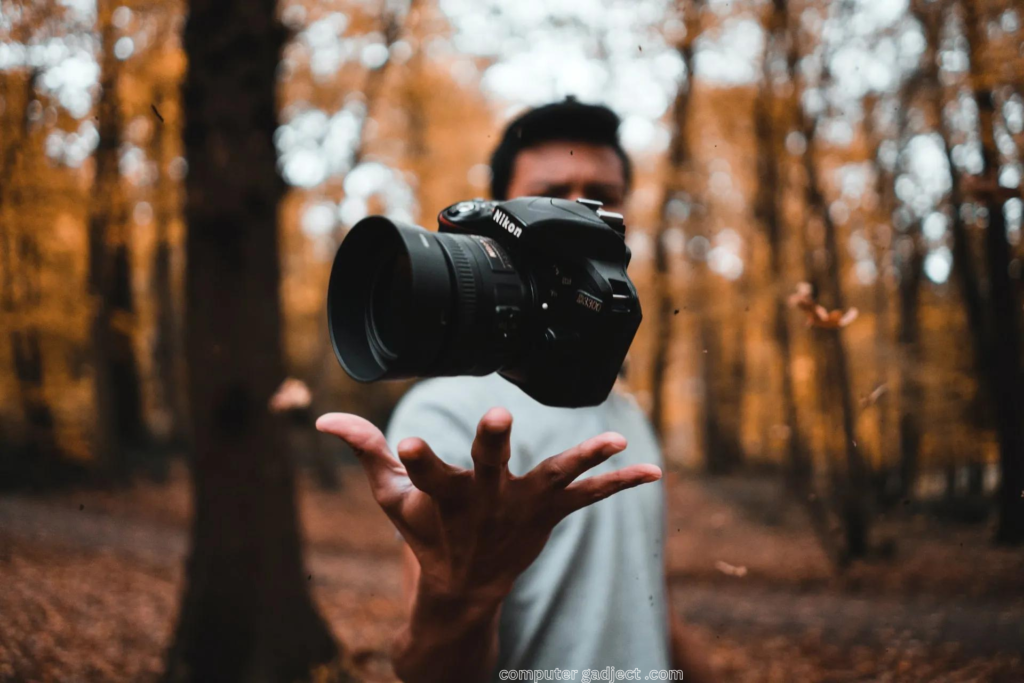
Tips For Taking Great Photos With Your Camera
Start your photography business with the right camera. Choose a camera with easy-to-use controls and manual settings that allow you to experiment with different camera settings. Look for decent resolution, good image quality, and various lenses that can meet your photography needs and improve your technique.
Taking great photographs is the best way to make your startup photography business a success. This can be achieved by understanding lighting, composition and framing, using manual mode and post-processing and editing. This post will explore these tips in detail and provide the information you need to improve your photography skills.
Understanding Lighting
Lighting is one of the most important factors when it comes to photography. It can make or break a photo. Understanding how to capture and use natural light or manipulate artificial light is essential to creating great photographs. Some tips for using lighting to your advantage are:
1. Use natural light to your advantage. Early morning or late afternoon light often has a soft, warm feel that makes it ideal for portraits.
2. avoid shooting in direct sunlight when photographing outdoors, as it can create harsh shadows.
3. Use reflectors or diffusers to modify the light and control shadows.
4. Experiment with artificial light sources such as flashes and studio lights.
Composition And Framing
Composition is essential in attracting the viewer’s attention and creating a compelling image. Framing is also crucial in determining the focus of your photo. Some tips for creating great composition and framing are:
1. Play with perspective and angles to create a dynamic composition.
2. Divide the frame using the rule of thirds and place your subject in the most appropriate location.
3. Use leading lines to create depth and guide viewers’ eyes.
4. Experiment with negative space to create a powerful, minimalist composition.
Using The Manual Mode
While automatic mode may be convenient, manual mode gives you more control over your camera settings and allows you to adjust your photos to your needs. Some tips for using manual mode are:
1. Understand the basics of exposure: aperture, shutter speed and ISO.
2. Adjust the aperture to control the depth of field and create a blurred background or a sharp photo with everything in focus.
3. Set the shutter speed to freeze motion or create motion blur.
4. Adjust the ISO to control the amount of light that enters the camera.
Post-processing And Editing
Post-processing and editing are essential to improving the quality of your photographs. Editing can help you adjust exposure, colour, and contrast, remove unwanted elements and focus the image. Some tips for post-processing and editing are:
1. Shoot in RAW format to have more control over the final image.
2. Use Lightroom or Photoshop to adjust exposure, colour, and contrast.
3. Remove unwanted elements using the clone tool or healing brush.
4. Focus on the image to improve its clarity and details.
In conclusion, taking great photographs is essential when starting a photography business. Understanding lighting, composition and framing, using manual mode, and post-processing and editing can help you create powerful, engaging images that will set you apart from the competition.
Frequently Asked Questions On Best Camera For Beginning Photography Business
What Is The Best Camera For A Startup Photographer?
The best camera for a new photographer depends on your budget, field of photography, and preferences. However, entry-level DSLRs like the Canon EOS Rebel T7 or Nikon D3500 are great for cost and ease of use. Mirrorless cameras like the Fujifilm X-T3 or Sony A6100 are also great for more advanced photographers.
What Camera Do I Need To Start A Photography Business?
To start a photography business, you need a camera that meets your needs and skill level. The most essential features are image quality, resolution, and lens options. It is recommended that you invest in a professional camera such as a Canon EOS R6 or Nikon Z6.
Additionally, having rearview camera equipment is essential for any photography business.
What Should A Beginner Photographer Look For In A Camera?
Beginning photographers should look for a camera with easy-to-use controls and good image quality. It should have a decent zoom lens, a high ISO range, and a fast shutter speed. Consider the type of photography you want and choose a camera with the right features.
Pay attention to the importance of a comfortable grip and good battery life.
What Do You Need When Starting A Photography Business?
Starting a photography business requires certain things, such as obtaining a business license, registering with state and local governments, purchasing camera equipment, creating a website, establishing a pricing strategy, and marketing your services. It is essential to develop a solid business plan before launching your business.
Conclusion
Choosing the right camera for a beginner photography business can be daunting. However, with the proper knowledge, research, and understanding of your specific needs, it is possible to find the perfect camera. Remember to consider factors such as budget, objectives and type of photography to make the best decision.
Whether you choose a DSLR or mirrorless camera, investing in a quality camera is crucial to building a successful photography business.

